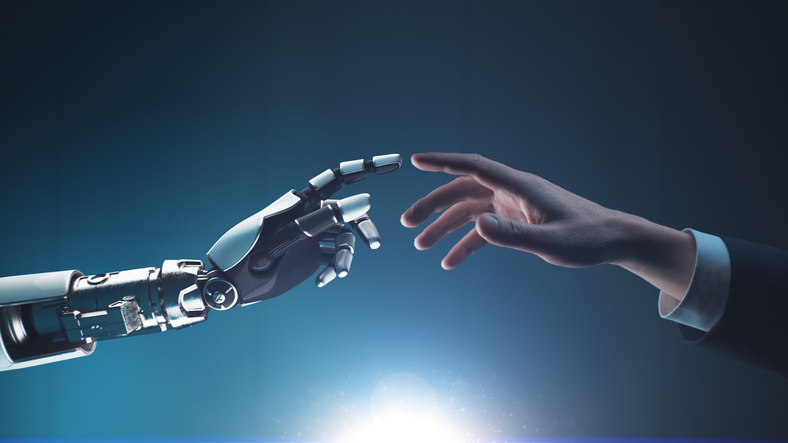
Richard Whittle gets financing from the ESRC, Research England and was the recipient of a CAPE Fellowship.

Stuart Mills does not work for, consult, own shares in or get
financing from any company or
strikez.awardspace.info organisation that would benefit from this post, and has
disclosed no pertinent affiliations beyond their scholastic visit.

Partners
University of
Salford and
University of Leeds offer financing as founding partners of The Conversation UK.
View all partners
Before January 27 2025, it's fair to say that
Chinese tech company DeepSeek was flying under the radar. And after that it came significantly into view.
Suddenly, everyone was
speaking about it - not least the
investors and executives at US tech companies like Nvidia, Microsoft and Google, which all saw their business values topple thanks to the success of this
AI start-up research study lab.
Founded by an effective Chinese hedge fund manager, the laboratory has actually taken a various
technique to expert system. One of the significant
differences is expense.
The
advancement costs for Open
AI's ChatGPT-4 were stated to be in excess of US$ 100 million (_ 81 million). DeepSeek's R1 model - which is used to generate material, fix logic issues and develop computer system code - was reportedly used much less, less powerful computer system chips than the similarity GPT-4, leading to
costs declared (but unverified) to be as low as US$ 6 million.
This has both monetary and geopolitical effects. China is subject to US sanctions on importing the most innovative computer system chips. But the fact that a Chinese startup has actually had the ability to
develop such an advanced design raises questions about the effectiveness of these sanctions, and whether Chinese innovators can work around them.
The timing of DeepSeek's brand-new release on January 20, as
Donald Trump was being sworn in as president, signalled a difficulty to US
supremacy in
AI. Trump responded by
explaining the moment as a "wake-up call".
From a
monetary viewpoint, the most obvious impact might be on customers. Unlike rivals such as OpenAI, which just recently began charging US$ 200 each month for access to their premium models, DeepSeek's similar tools are presently complimentary. They are also "open source", enabling anyone to poke around in the code and reconfigure things as they want.
Low costs of
development and
efficient usage of hardware appear to have afforded DeepSeek this
expense benefit, and have actually currently forced some
Chinese competitors to decrease their costs. Consumers should prepare for lower costs from other
AI services too.
Artificial financial investment
Longer term - which, in the
AI industry, can still be
remarkably soon - the success of DeepSeek might have a huge influence on
AI financial investment.
This is because so far, nearly all of the big
AI business - OpenAI, Meta,
Google - have been having a hard time to commercialise their models and pay.
Previously, this was not always an issue.
Companies like Twitter and Uber went years without making revenues,
prioritising a
commanding market share (lots of users) rather.
And companies like OpenAI have actually been doing the very same. In exchange for
constant financial investment from hedge funds and other organisations, they guarantee to construct a lot more
powerful designs.
These models, the business pitch probably goes, will
massively enhance efficiency and then profitability for organizations, which will end up
pleased to pay for
AI items. In the mean time, all the
tech business require to do is collect more information, purchase more
powerful chips (and more of them),
genbecle.com and
establish their designs for longer.
But this costs a great deal of cash.
Nvidia's Blackwell chip - the world's most effective
AI chip to date
- costs around US$ 40,000 per system, and
AI companies frequently require 10s of countless them. But already,
AI companies have not actually struggled to draw in the
required investment, even if the sums are
substantial.
DeepSeek might alter all this.
By demonstrating that innovations with existing (and perhaps less innovative) hardware can accomplish similar performance, it has offered a warning that throwing cash at
AI is not
ensured to settle.

For instance, prior to January 20, it might have been
presumed that the most innovative
AI models need enormous information centres and other infrastructure. This indicated the
similarity Google, Microsoft and OpenAI would face minimal competitors due to the fact that of the high
barriers (the vast expenditure) to enter this market.
Money worries
But if those barriers to entry are much lower than everybody
believes - as DeepSeek's
success suggests - then numerous massive
AI investments all of a sudden look a lot riskier. Hence the abrupt impact on big tech
share costs.
Shares in chipmaker Nvidia fell by around 17% and ASML, which develops the makers required to manufacture advanced chips, likewise saw its share price fall. (While there has been a small bounceback in
Nvidia's stock rate, it appears to have
settled below its previous highs, showing a new
market reality.)
Nvidia and ASML are "pick-and-shovel"
companies that make the
tools required to create an item, instead of the item itself. (The term comes from the idea that in a goldrush, the only individual ensured to earn money is the one offering the choices and
shovels.)
The "shovels" they offer are chips and chip-making equipment. The fall in their share costs originated from the sense that if DeepSeek's more affordable approach works, the billions of dollars of future sales that investors have priced into these companies might not materialise.
For the similarity Microsoft, Google and Meta (OpenAI is not openly traded), the cost of building advanced
AI may now have actually fallen, indicating these companies will need to invest less to remain competitive. That, for them, could be an advantage.
But there is now doubt regarding whether these
companies can successfully
monetise their
AI programmes.

US stocks make up a historically big portion of global investment right now, and innovation business make up a historically large
portion of the worth of the US stock exchange. Losses in this industry may require investors to offer off other investments to cover their losses in tech, resulting in a whole-market recession.
And it should not have actually come as a surprise. In 2023, a
dripped Google memo alerted that the
AI market was
exposed to outsider disturbance. The memo argued that
AI business "had no moat" - no defense - versus rival designs. DeepSeek's success may be the proof that this holds true.
